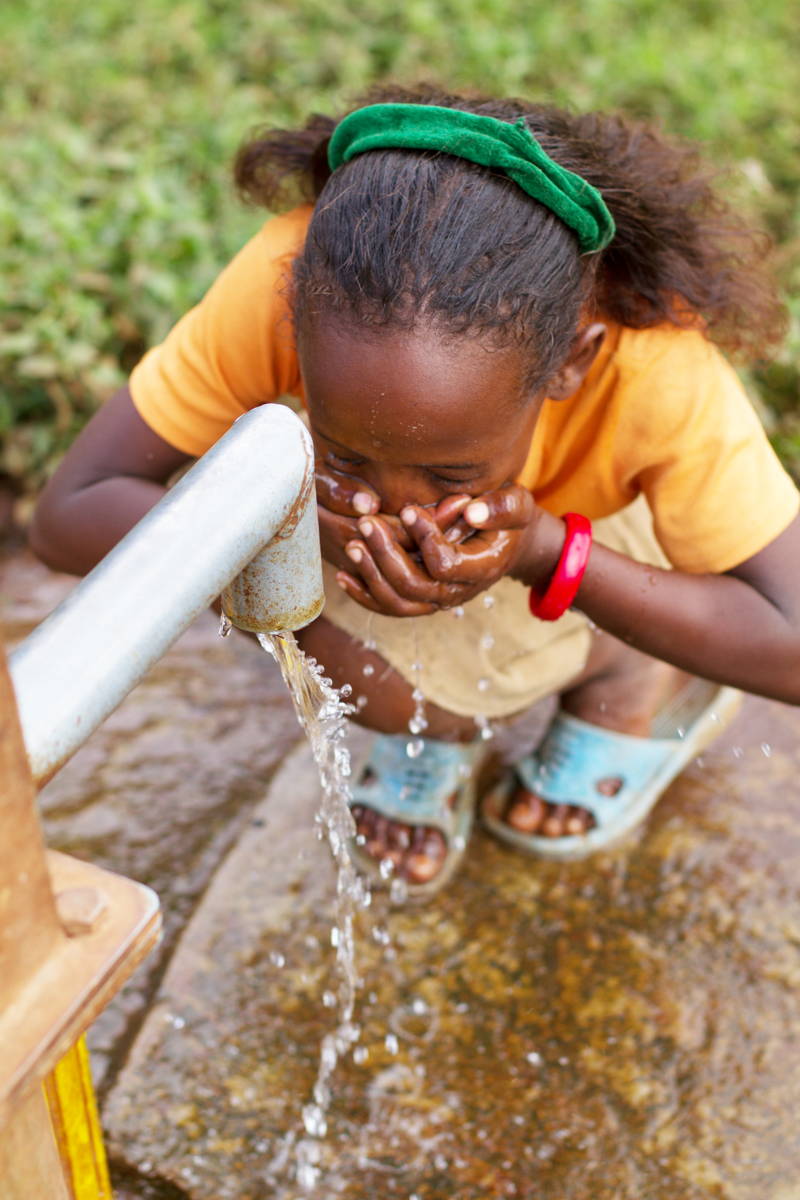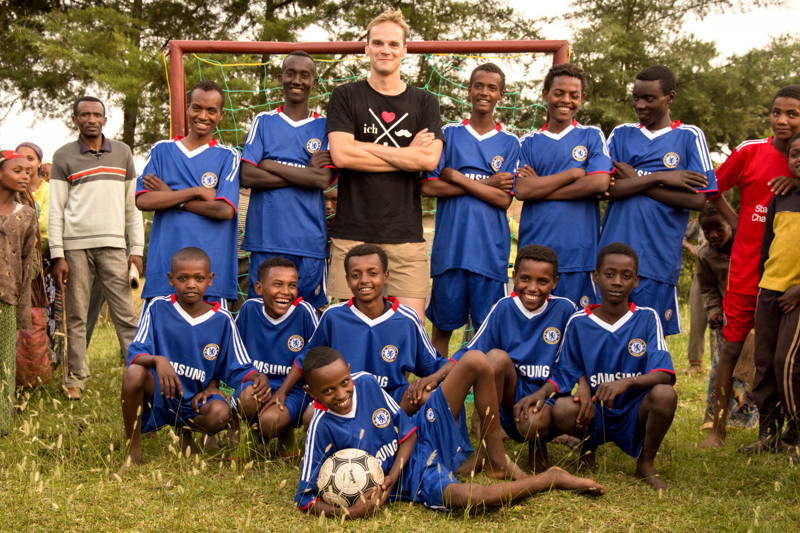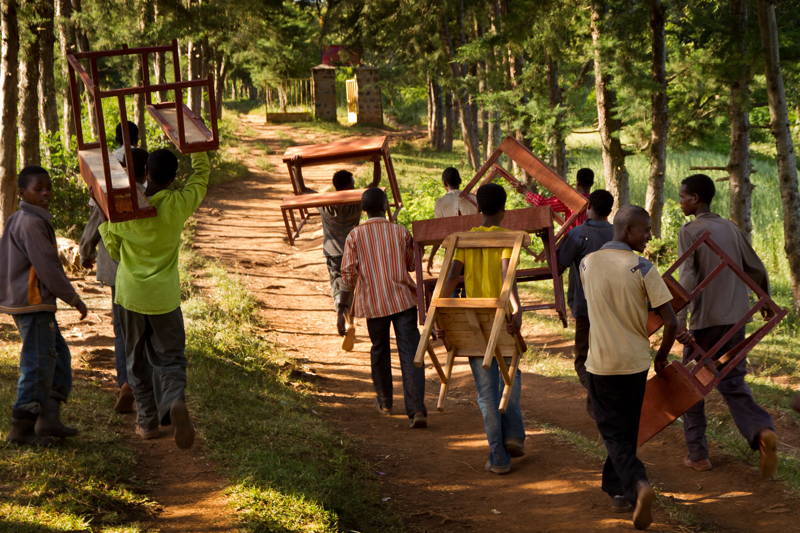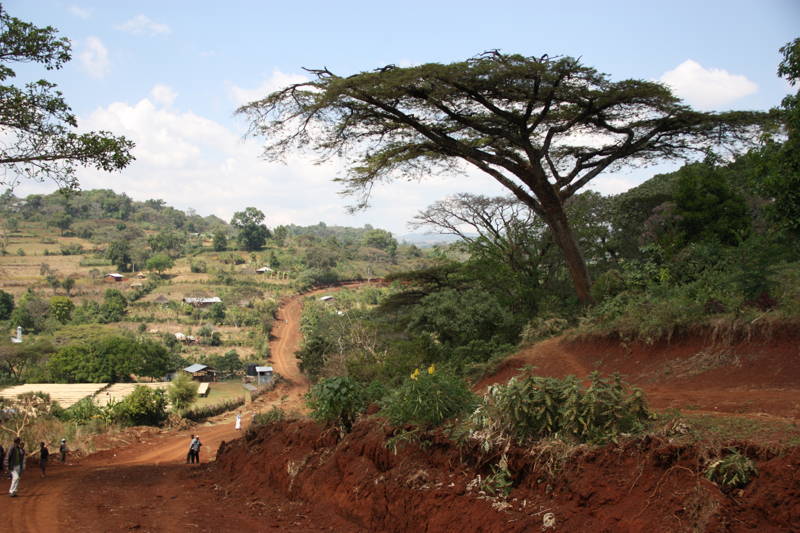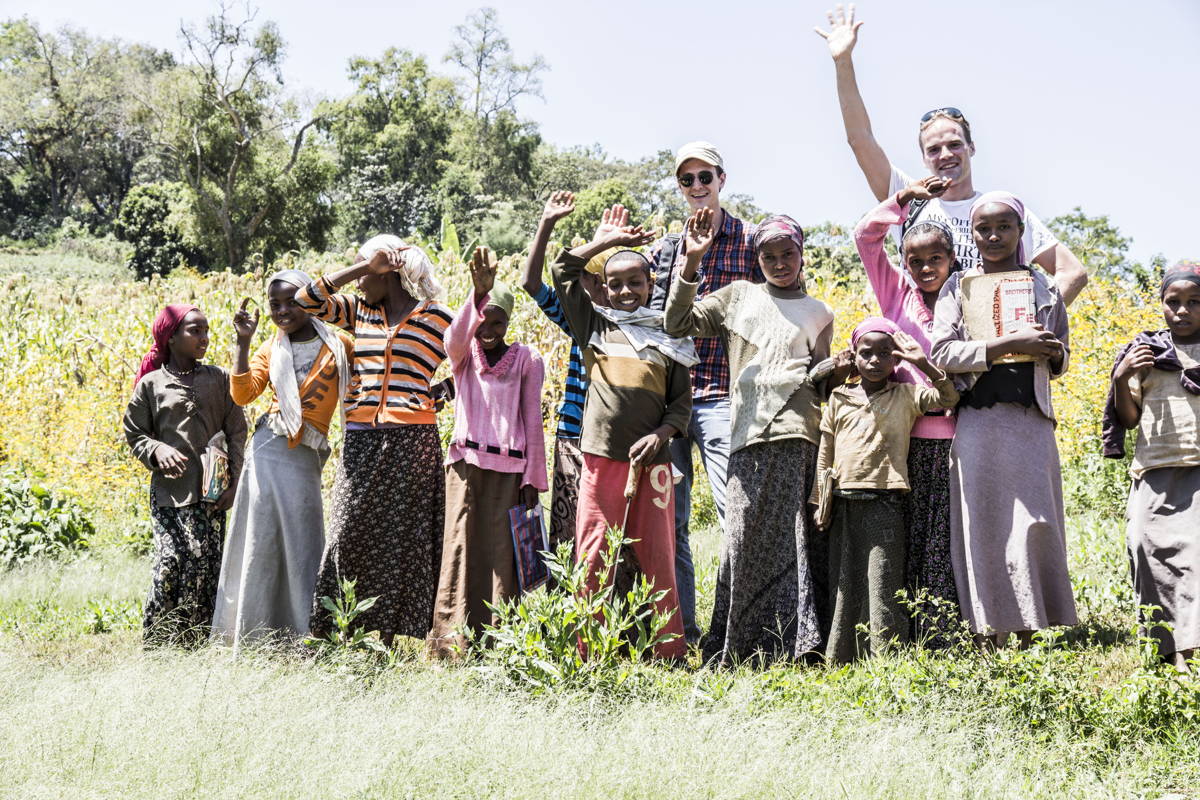
Clean water, education and medicine for 8,000 people in Jimma
On December 7th 2010, our online store for specialty coffee went online. At that time, the plan was to offer exclusively Ethiopian coffees. Our first product, Limu, turned out to be a great success, so that we were able to raise almost 6,000 € in donations for three projects in the Ilketunjo cooperative through sales in the very first year.
In the village, close to the school, we built a well to give the Ilketunjo cooperative access to clean drinking water. We also equipped the school with furniture, books, other learning materials and a sports field. The goal was to motivate both students and teachers. This has been successful: Compared to previous years, fewer students have dropped out of school. They also attend classes more regularly. In addition, together with a doctor and some nurses, we have equipped the health station in Ilketunjo with basic instruments and medicines.
At a glance
- Project volume: 5.095 €
- Implementation period: Februar 2011 – 2012
- Region: Jimma, Äthiopien
- Cooperative: Ilketunjo
- Geo coordinates: 7.481238047821042, 36.07923623228952
- Beneficiaries: ca. 7.600 people (incl. affected households)
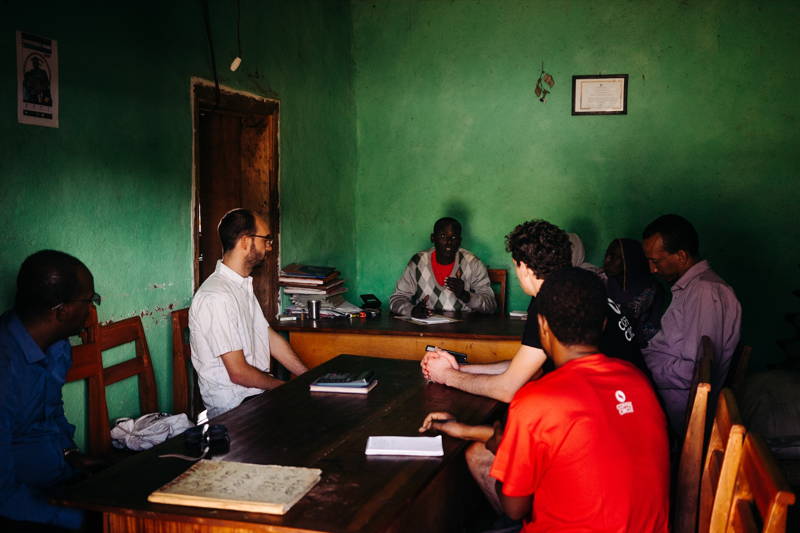
Why were these projects so important?
In the cooperative Ilketunjo, from which we got our Limu coffee, there was no direct drinking water supply. In addition, teaching at the elementary school was only possible to a limited extent due to a lack of learning materials and furniture. Due to these deficiencies, many students dropped out of school prematurely or attended classes irregularly. During discussions with the students, it quickly became clear that they would like to have their own sports field, which was previously lacking. During our first visits to Jimma, Ethiopia, it quickly became clear where to start first: Residents complained about the lack of drinking water and the lack of motivation among students and teachers alike. Together, we therefore turned to these projects with the help of the first Coffee Circle donations.
How were the projects implemented?
With the help of an expert advisor from the local „Water Office“, we were able to build a well for donations worth € 1,000, which has supplied around 2,000 people with clean drinking water.
The projects were developed in close cooperation with the local community. During one of our first visits to the region, our co-founder Martin Elwert and his colleagues took the opportunity to talk to the village elders to explain our concept: as direct traders, we buy coffee, then give back to the community from the sale by supporting those projects that the inhabitants feel are urgent. During an initial discussion, it became clear that the men saw an asphalted road and laptops as necessary measures for their community, while the women and the doctor in charge had something completely different in mind: a well for clean drinking water. Until then, it was up to the women to regularly transport pure water over several kilometers to the various households.
Stephan Eicke: What came after the well construction, Martin
Martin Elwert: We equipped the local school. You have 100 to 120 kids per class, also of different ages. The teachers are trained centrally, for example in Addis Ababa or in Jimma. Then, no matter where they come from, they are sent to the country. So it can happen that someone who comes from the southwest teaches in the northeast of the country. Then they have to live in those facilities that are available. These are often the simplest huts. If someone comes from Addis and has lived in a dormitory there, it is an adjustment at first. The motivation is very high for what is offered to them there. But it decreases when they don’t even have proper materials to work with. They had no proper books, no good blackboards, the children didn’t even have notebooks to write in.
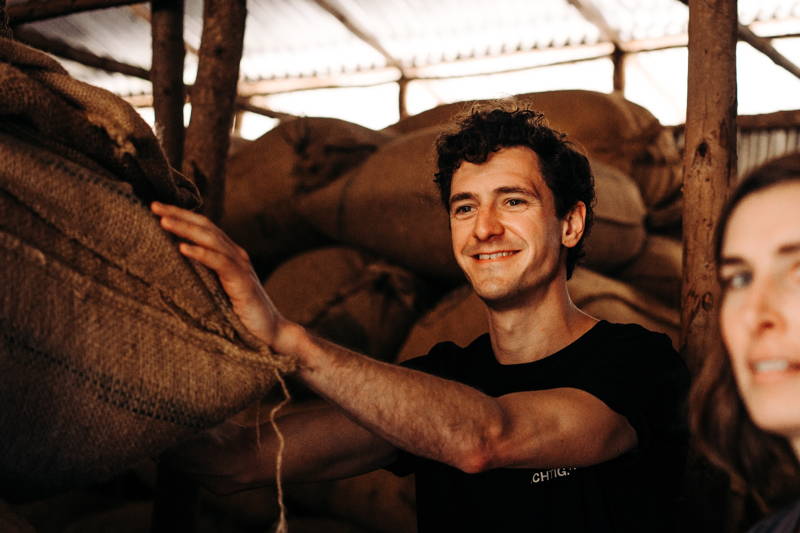
Our coffees from Ethiopia
Thanks to Coffee Circle donations, students and teachers alike received, among other things, exercise books and pencils worth €1,200 and furniture worth €1,900. Through a lending system, all students benefit from this improvement. We have also determined the exact need for desks and benches. All furniture was made by carpenters in the provincial capital Jimma. In addition, at the request of the students, we designed a sports field by straightening a sloping hillside and equipping it as a volleyball and soccer field. 700 € of donations were used for this project.
Stephan Eicke: Is there anything you learned from the first Jimma (or Coffee Circle) project?
Martin Elwert: Yes. There was an infirmary, a so-called health post. They are not staffed all the time, but a nurse comes by regularly. This health post was in a separate building in the village, but there was no treatment couch in it. We purchased this couch, a chair and medicine. The couch and the chair are still there, still being used. But medicine was a stupid idea in retrospect. It was quickly gone. We have a few basic principles, one of which is not to create dependency. That is, we would not hire anyone or purchase consumables that we would always have to re-procure as they were used. We can’t meet those expectations. At that time, we still thought it made sense. We managed these projects – the well, the school, the health station. The NGO TechnoServe supported us with their vehicles, which we were able to use.
We received a commitment from the responsible local government to ensure the provision and regular presence of medical personnel on site. Thus, the medical (primary) care of about 3,000 inhabitants of the cooperative could be guaranteed. Donations of € 1,150 were spent on equipping the health station.
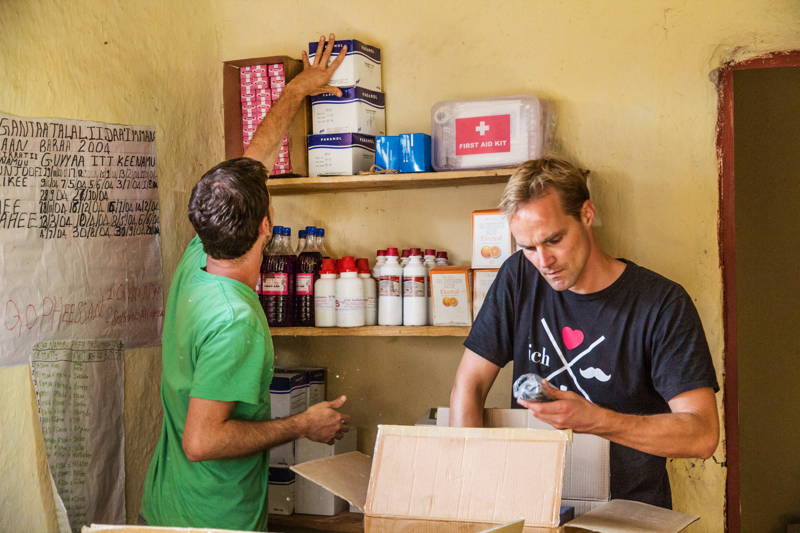
What changed?
The equipping of the school and establishment of the sports field were crowned with great success: 1.5 years after project implementation, we conducted an evaluation together with the non-governmental organization TechnoServe. The school in Ilketunjo now has classes up to grade 8 (not just grade 5 as before). The school dropout rate has dropped from an average of 6 children to 2 children. „Water is a driving force,“ says Martin Elwert, „education itself, but also the possibility of wanting to spend additional time at school through the sports field.“
Durch den Bau des Brunnens und damit die Versorgung der Gemeinde mit sauberem Trinkwasser konnte vielen Krankheiten entgegengewirkt werden. Allerdings erwies sich die Planung des Brunnens im Nachhinein als problematisch: Auf Anweisung des Wasserbeauftragten der Regierung war er auf einer Anhöhe – vor dem Regierungsgebäude – gebaut worden, an einer Stelle, an der tief gebohrt werden musste, um an das Grundwasser zu gelangen. Nach einigen Jahren versiegte die Quelle. Der Brunnen wurde von der Gemeinde später erneuert, bevor das gesamte Dorf an unser WaSH-Projekt in Äthiopien angeschlossen wurde, um die ganze Region mit sauberem Wasser zu versorgen.
A report by Stephan Eicke
